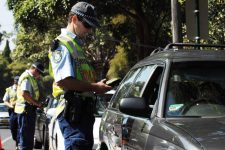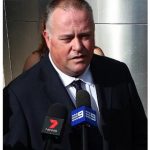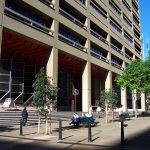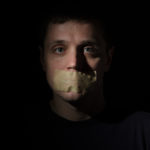Drug Driving Charges Are On the Rise

Back in December 2015, the NSW government announced it was tripling the amount of roadside drug testing police were carrying out annually to 97,000 tests by 2017. And not surprisingly, the amount of people being charged with drug driving has more than tripled.
Over the 24 months ending in June last year, the number of drug driving charges finalised in NSW courts had increased by 320 percent, recent figures from a NSW Bureau of Crime Statistics and Research (BOCSAR) report reveal.
The amount of tests carried out by NSW police was up from 2,331 in 2014/15, to 9,808 in the year 2015/16.
NSW police roadside drug testing operations have nothing to do with road safety, as they don’t test for impairment. It’s more about authorities taking a zero tolerance approach to illicit drug use, and they’re even selective about which illegal substances they’re going to punish you for.
Targeting the young
The BOCSAR figures show that majority of people found guilty of drug driving were males. They accounted for 79 percent of those convicted. And most individuals who were convicted were young people. Seventy two percent of those found guilty were aged between 18 and 39 years of age.
It’s hardly a shock that a vast majority of people being charged with drug driving offences are young, as police are targeting illicit drugs that younger members of society tend to use. In NSW, as well as in the rest of the country, police only test for three substances: cannabis, MDMA and amphetamines.
It’s about punishment, not road safety
When police carry out random breath testing for alcohol, they’re testing for driver impairment. This is an approach based on research that show’s certain levels of alcohol in a driver’s blood leads to increased danger when they’re behind the wheel of a car.
However, roadside drug testing doesn’t test for impairment. Instead, what they test for is minute traces of the three aforementioned illicit drugs in a driver’s system. This means a driver might have smoked a joint a week prior to testing, but the device may still pick up traces of it.
While random breath testing has everything to do with trying to stop impaired drivers having accidents, roadside drug testing has nothing to do with that. It’s all about punishing people who take illegal substances, using old drug war tactics.
Selective punishment at that
NSW Greens MLC David Shoebridge has recently obtained figures from the NSW Centre for Road Safety via the Government Information (Public Access) Act 2009. They reveal that the amount of drug-related road accidents involving cocaine is roughly the same as those involving MDMA.
A major difference between these two drugs is that MDMA is cheaper and therefore more accessible to younger people. Whereas, cocaine is a drug enjoyed by wealthier members of society, and perhaps due to its price, more mature citizens.
The fact that roadside drug testing is not about safety is made glaringly obvious, when you take into account the road safety centre figures show that one-third of drug-related accidents involve the use of benzodiazepines – or prescription drugs more commonly known as Xanax and Valium.
So the state government has a department dedicated to road safety, which has figures outlining that these prescription drugs are involved in more road accidents than any other type. And yet the authorities don’t test for these legal drugs – in the way they do alcohol – most likely because they don’t want to upset big pharmaceutical companies.
The minutest trace amounts are an offence
Australia is the only country in the world to have implemented a large-scale roadside drug testing regime of this type. In NSW, it began in 2007, shortly after the laws were amended to make it illegal to drive with any trace amount of an illicit substance present in an individual’s oral fluid, blood or urine.
NSW police always had the power to charge someone for driving under the influence of illicit drugs. However, under the Roadside Transport Legislation Amendment (Drug Testing) Act 2006 it was no longer necessary to prove that a driver was impaired.
And unlike drink driving – where there are statutory blood alcohol limits – there are no statutory drug concentration limits governing drug driving. A driver found with any trace amount of an illicit substance in their system can be charged with the offence.
Lismore magistrate David Heilpern made a landmark decision in February 2016, when he found Joseph Carrall not guilty of drug driving, as it was found that he hadn’t smoked any pot for nine days prior to being tested.
Hitting those in the country
The BOCSAR figures outline that NSW police are cracking down on those who live in regional areas. The rate of prosecution is two times higher in regional NSW, than in metropolitan areas of the state. In regional areas the prosecution rate is 180 people per 100,000 adults, while in metropolitan centres it’s at 93 individuals per 100,000.
The conviction rate in the Richmond Tweed region is five times the state rate. This area is part of the Northern Rivers region and it’s well-known that area has been the focus of the NSW police roadside drug testing blitz over the last several years.
Taking their licences away
Of those charged with drug driving state-wide, 98 percent are subsequently found guilty in court, BOCSAR research shows. Almost two-thirds of those convicted receive a fine, and the second most common penalty is a section 10 bond (now conditional release order without conviction) – where no conviction is recorded.
However, around 80 percent of those convicted of drug driving lose their licence. For a first offence they lose it for 6 months, and it’s a 12 month disqualification for a second and subsequent offences.
So it’s the policy of the NSW police to hit people living in the country hard with roadside drug testing, which results in these people losing their licences. A driver’s licence is a lot more valuable for people living in regional areas, as there’s little public transport available.
For people who live in the country, a licence is vital for employment and educational purposes, or for just plain trying to survive.
To top it all off, the amount of people who’ve had their licence disqualified for drug driving and then subsequently been charged with driving whilst their licence is disqualified has tripled over recent years. It’s up from 133 in the year ending June 2015 to 542 in June the following year.
And the penalties for driving while disqualified are much more severe, than those for drug driving. They include custodial sentences, suspended sentences and being placed under an Intensive Correctional Order.
Time to bring it to an end
Australia 21 released their latest report on drugs at the end of March this year. In it they made key recommendations aiming to decriminalise drugs in this country.
What’s so significant about this is that the majority of those who produced the report are former senior law enforcement and law officials, including ex-police commissioners and heads of corrective services.
One of the key recommendations the independent think tank made was to end the current roadside drug testing regime in this country, as “the purpose of such testing should be to ascertain whether the driver is unsafe or unfit” to drive, not to see whether they’d consumed illicit drugs at an earlier time.
When former top brass are calling for an end to operations run by the public departments they used to lead, then it’s clear these programs are not in the interest of public safety, and are more about continuing failed drug war policies.
It’s high time for the authorities to face up to that and make the change.
Going to court for a traffic offence?
If you are going to court for a traffic offence, call or email Sydney Criminal Lawyers anytime to arrange a free first consultation with an experienced, specialist traffic lawyer who will accurately advise you of your options, the best way forward, and fight for the optimal outcome in your specific situation.
Receive all of our articles weekly
Authors

Paul Gregoire







